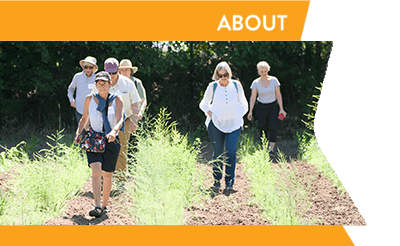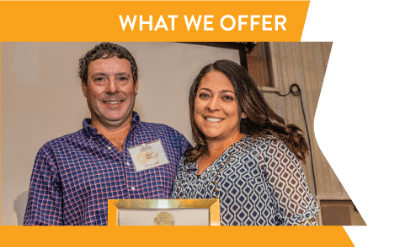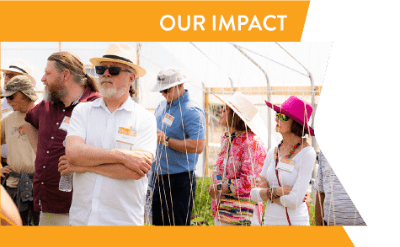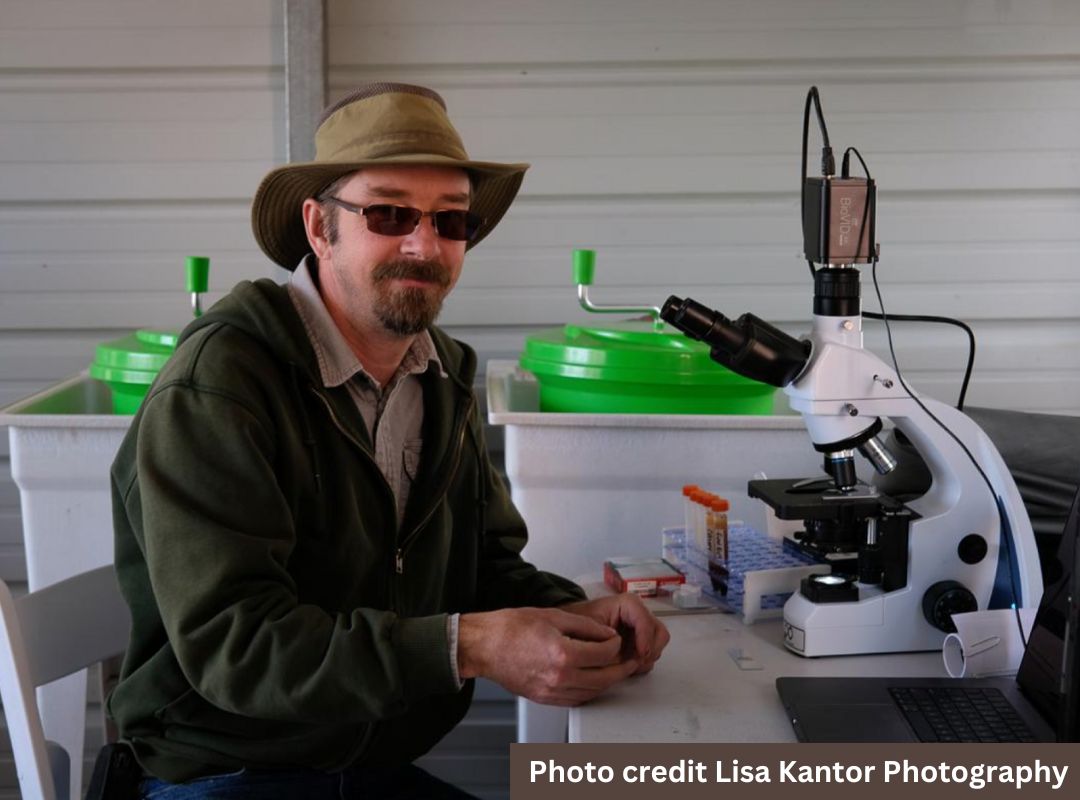
Healthy Soils is a 2023 initiative of the Santa Fe Farmers’ Market Institute that will contribute to more profitable farm production while improving the environment. “This initiative is based on the understanding that building healthy soil can reduce the need for conventional farm inputs and interventions such as herbicides, pesticides and chemical fertilizers, while also reducing water consumption and, often, increasing productivity,” said David Sundberg, Institute Program Development Director.
The goal of the program is to provide funding to implement soil building practices with the partner aid of New Mexico Healthy Soil Working Group. A critical part of this process is to test the soil biology, structure and available nutrients, as well as the plants and produce growing in the soil, for their health and nutrient density. These tests would provide valuable information for the practices that have the greatest impact on soil health in the region and on the food produced.
N3B, the Los Alamos Legacy Cleanup Contractor, funded the initial phases of this program. The company’s focus on environmental remediation and waste management made them a perfect partner for this program.
The first phase of the program was to identify farmers and ranchers interested in regenerative farming practices. Four Española farmers were eager to participate: 2022 Farmer All Star Anna Maria Alcantar of Rocio Produce and her sister Estela Alcantar of Estela Alcantar Produce, Antonio Orozco of Tony’s Farm, and Reynal Orozco of Orozco Farm. Rancher Andrew Greer of Lazy BG based in Dilia, New Mexico, also participated.
The second phase of the program was to test the soil on each property. Certified Soil Web Lab Technician Josh Weybright and Steve Kadas, a former USDA National Resource Conservation Service Officer, served a consultants on this next step. The results in hand, Kadas then helped each farmer and rancher develop a conservation plan to submit to the Soil and Water Conservation District in each farm area. “With many options to choose from, the team focused on cover cropping, adding carbon amendments, and applying beneficial biology,” Sundberg said.
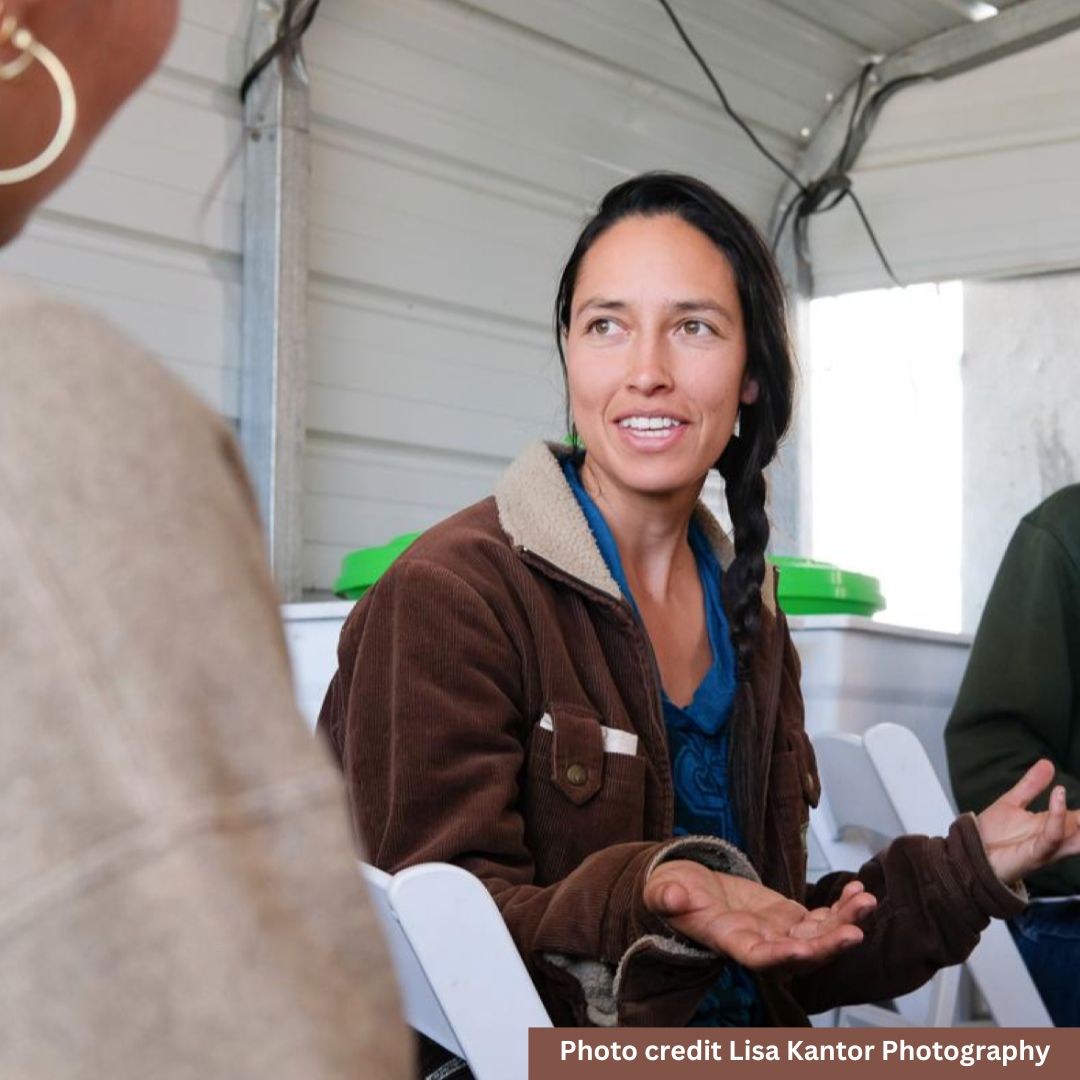
Once the conservation plan was approved, Patrick de Simino was engaged as a grant writer to craft the application to the New Mexico Healthy Soils Program. The application is complex, written in scientific language, and requires significant technical understanding to complete. Patrick de Simino brought the needed experience as founder of Seeding Regenerative Agriculture (SRA). It is a nonprofit organization based in Las Cruces, N.M., with a mission to promote agricultural practices that protect the environment and work economically. SRA works especially in the fields of sustainable and regenerative agriculture. Assisting our Spanish-speakers were Lina Alegre and Navona Gallegos, both students of the Soil Food Web School and native Spanish speakers.
If funded, rancher Andrew Greer will use the grant to address “soil compaction and soil organic matter depletion on my 51.3-acre ranch.”
“I will implement prescribed grazing and begin intercropping with fall and spring late cover crops,” Greer said, adding that to enhance microbial diversity, the cover crop seeds will also be inoculated with compost extract.” Each year applicants may request up to $22,000 in funding. This year applicants will be notified on or about June 27, 2023 and awarded grants must be spent between August 2023 and May 2024.
According to the New Mexico Healthy Soils administrators, all grant funds are paid on a cost-reimbursement basis. This means that the individual applicant implementing the project must incur project costs before seeking Healthy Soil Program funds to reimburse those costs. That creates a role in the process for the Institute’s Microloan Program, with many recipients of grants applying for low-interest bridge loans to cover their project costs while waiting for reimbursement.
As you can see, it took a village to complete this portion of the project: funders, scientists, writers and especially farmers and ranchers all working together under the umbrella of the Santa Fe Farmers’ Market Institute.
The (dirt) road ahead, check out the June newsletter to read about the Institute’s recent composting workshop.
